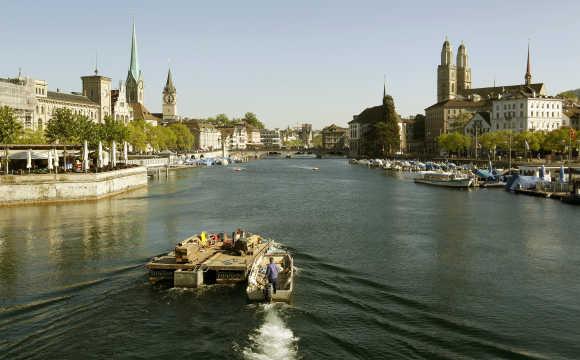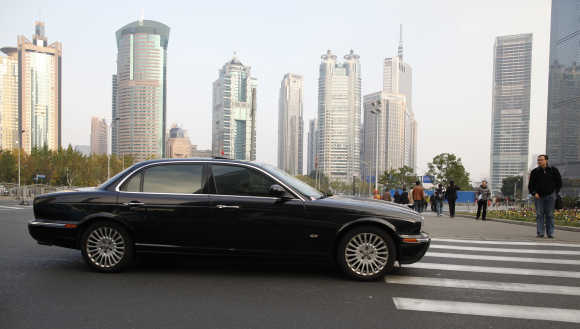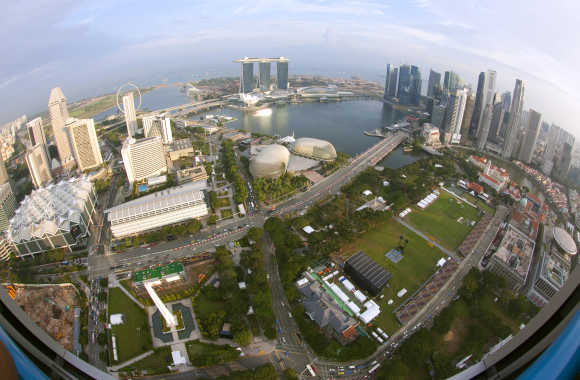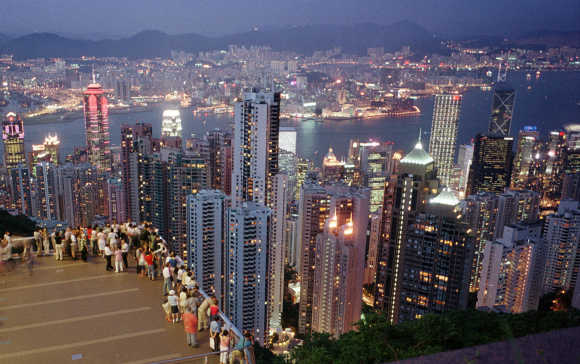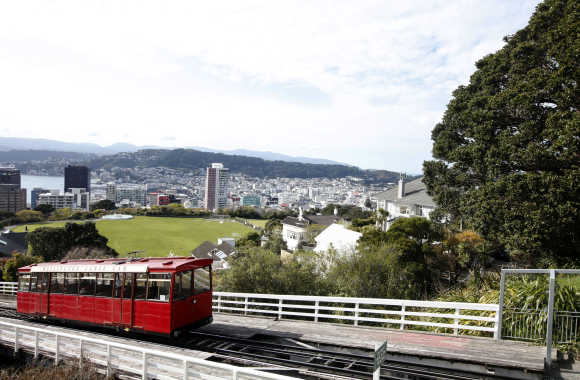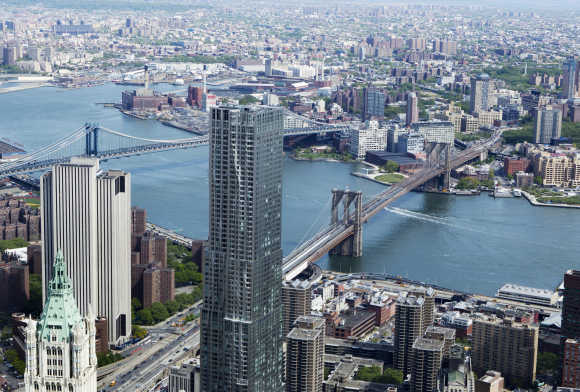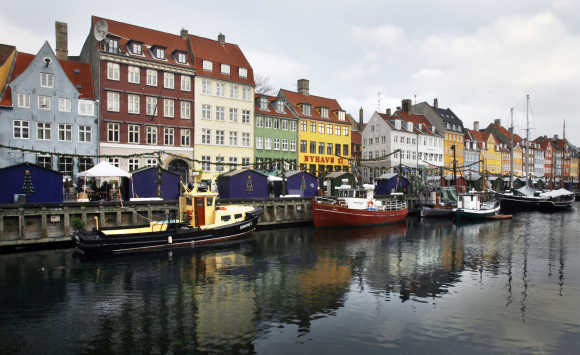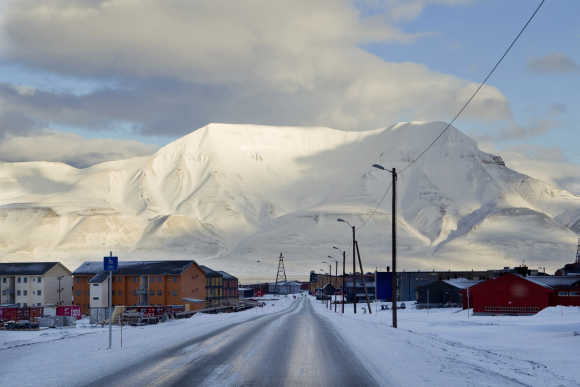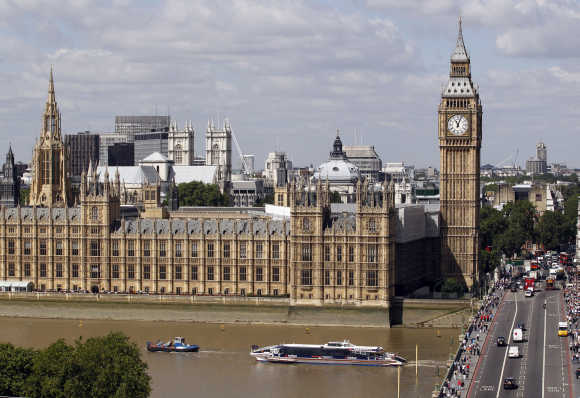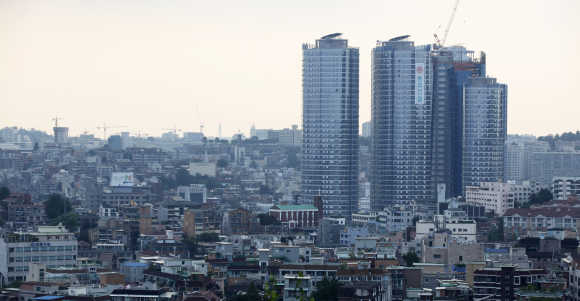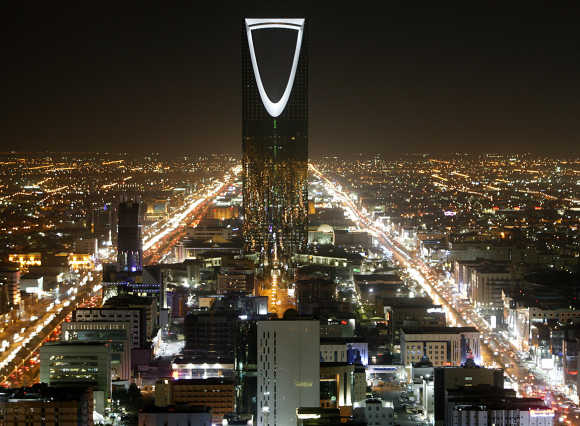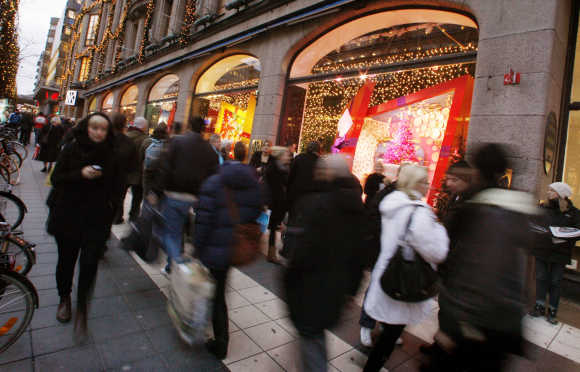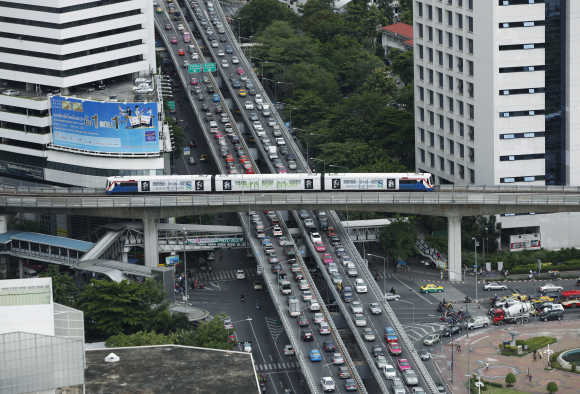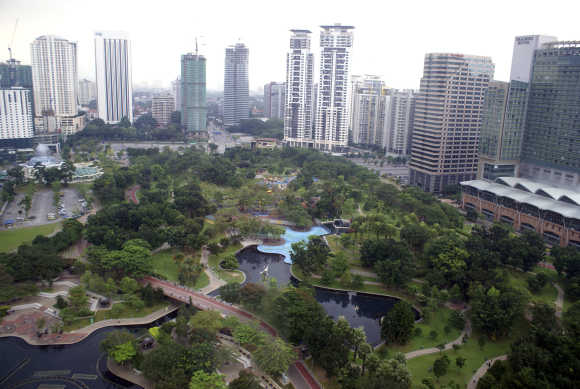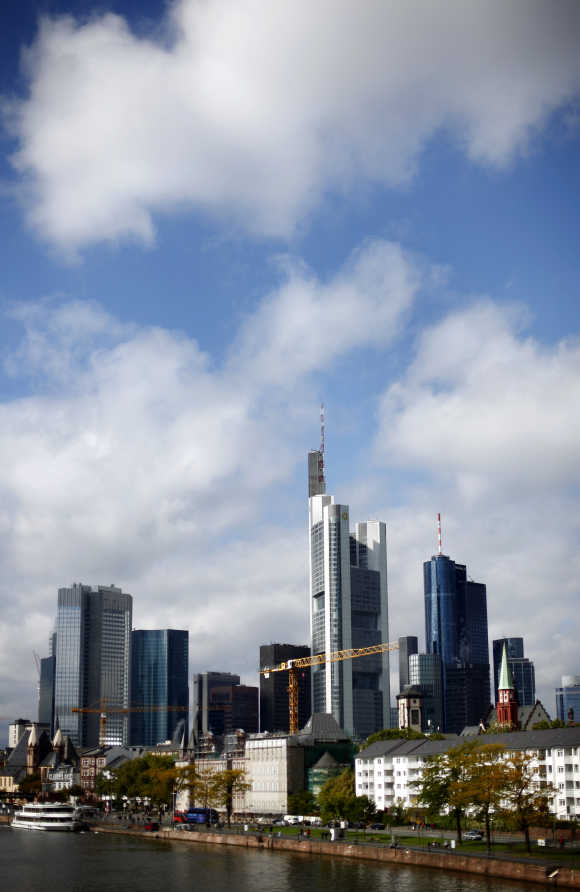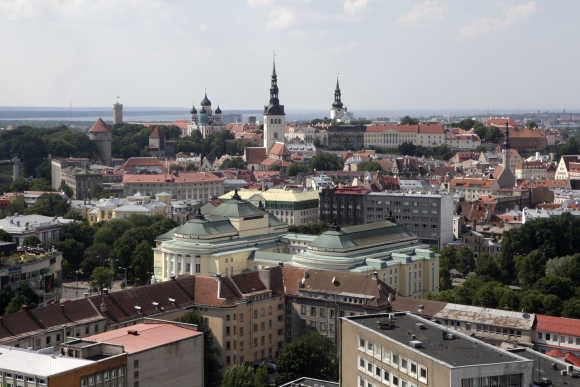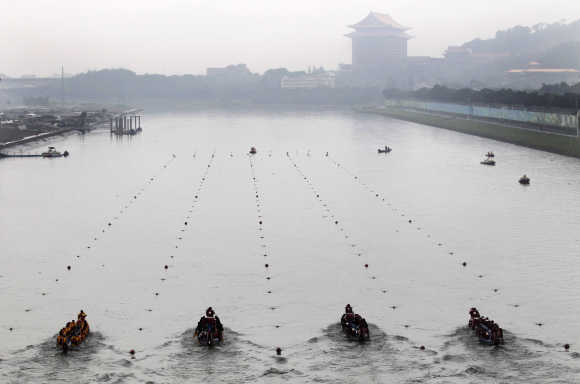 | « Back to article | Print this article |
25 most business-friendly countries in the world
Not all countries are as welcoming to business as others. While many nations go out of their way to create a business-friendly environment, some are slow in removing restrictions.
So, which countries are business-friendly in the world?
Let's take a look at India, China and 25 nations that have the most welcoming policies, according to Doing Business.
Click NEXT to see India's ranking...
25 most business-friendly countries in the world
India
Doing business rank (2011): 139
Doing business rank (2012): 132
In India the progressive elimination of the "license raj" led to a six per cent increase in new firm registrations, and highly productive firms entering the market saw larger increases in real output than less productive firms.
Simpler entry regulation and labour market flexibility were found to be complementary. States with more flexible employment regulations saw a 25 per cent larger decrease in informal firms and 17.8 per cent larger gains in real output than states with less flexible labour regulations.
Click NEXT to see China's rank...
25 most business-friendly countries in the world
China
Doing business rank (2011): 87
Doing business rank (2012): 91
Worldwide, 125 economies implemented 245 reforms making it easier to do business in 2010/11, 13 per cent more than in the previous year. In low- and lower-middle-income economies a greater share of these changes were aimed at strengthening courts, insolvency regimes and investor protections than in earlier years.
The pickup in the pace of regulatory reform is especially welcome for small and medium-size businesses, the main job creators in many parts of the world.
Click NEXT to see the most business-friendly nations in the world...
25 most business-friendly countries in the world
Singapore
Doing business rank (2011): 1
Doing business rank (2012): 1
Enabling private sector growth - and ensuring that poor people can participate in its benefits - requires a regulatory environment where new entrants with drive and good ideas, regardless of their gender or ethnic origin, can get started in business and where fi rms can invest and grow, generating more jobs.
Click NEXT to read more...
25 most business-friendly countries in the world
Hong Kong
Doing business rank (2011): 2
Doing business rank (2012): 2
Doing Business 2012 is the ninth in a series of annual reports benchmarking the regulations that enhance business activity and those that constrain it.
The report presents quantitative indicators on business regulation and the protection of property rights for 183 economies - from Afghanistan to Zimbabwe. The data are current as of June 2011.
Click NEXT to read more...
25 most business-friendly countries in the world
New Zealand
Doing business rank (2011): 3
Doing business rank (2012): 3
A fundamental premise of Doing Business is that economic activity requires good rules - rules that establish and clarify property rights and reduce the cost of resolving disputes; rules that increase the predictability of economic interactions and provide contractual partners with certainty and protection against abuse.
Click NEXT to read more...
25 most business-friendly countries in the world
United States
Doing business rank (2011): 4
Doing business rank (2012): 4
The objective is regulations designed to be efficient, accessible to all and simple in their implementation. In some areas Doing Business gives higher scores for regulation providing stronger protection of investor rights, such as stricter disclosure requirements in related-party transactions.
Click NEXT to read more...
25 most business-friendly countries in the world
Denmark
Doing business rank (2011): 5
Doing business rank (2012): 5
Doing Business takes the perspective of domestic, primarily smaller companies and measures the regulations applying to them through their life cycle.
This year's report ranks economies on the basis of 10 areas of regulation - for starting a business, dealing with construction permits, getting electricity, registering property, getting credit, protecting investors, paying taxes, trading across borders, enforcing contracts and resolving insolvency (formerly closing a business).
In addition, data are presented for regulations on employing workers.
Click NEXT to read more...
25 most business-friendly countries in the world
Norway
Doing business rank (2011): 7
Doing business rank (2012): 6
Across regions, entrepreneurs in developing economies face a regulatory environment that is on average less business-friendly than those in OECD high-income economies.
This means costlier and more bureaucratic procedures to start a business, deal with construction permits, register property, trade across borders and pay taxes.
Click NEXT to read more...
25 most business-friendly countries in the world
United Kingdom
Doing business rank (2011): 6
Doing business rank (2012): 7
Getting an electricity connection, a new dimension in this year's ease of doing business ranking, costs more on average in Sub-Saharan Africa than in any other part of the world - more than 5,400 per cent of income per capita (the average in OECD high-income economies is 93 per cent of income per capita).
Click NEXT to read more...
25 most business-friendly countries in the world
South Korea
Doing business rank (2011): 15
Doing business rank (2012): 8
Local businesses complete more complex formalities to get an electricity connection in many Eastern European and Central Asian economies than anywhere else in the world.
Click NEXT to read more...
25 most business-friendly countries in the world
Iceland
Doing business rank (2011): 13
Doing business rank (2012): 9
But it is not just about complex formalities or red tape. A less business-friendly regulatory environment also means weaker legal protections of minority shareholders and weaker collateral laws and institutions such as courts, credit bureaus and collateral registries.
Click NEXT to read more...
25 most business-friendly countries in the world
Ireland
Doing business rank (2011): 8
Doing business rank (2012): 10
Globally, more efficient regulatory processes often go hand in hand with stronger legal institutions and property rights protections.
Click NEXT to read more...
25 most business-friendly countries in the world
Finland
Doing business rank (2011): 14
Doing business rank (2012): 11
There is an association between the strength of legal institutions and property rights protections in an economy as captured by several sets of Doing Business indicators (getting credit, protecting investors, enforcing contracts and resolving insolvency) and the complexity and cost of regulatory processes as captured by several others (starting a business, dealing with construction permits, getting electricity, registering property, paying taxes and trading across borders).
Click NEXT to read more...
25 most business-friendly countries in the world
Saudi Arabia
Doing business rank (2011): 10
Doing business rank (2012): 12
OECD high-income economies, by a large margin, have the world's most business-friendly environment on both dimensions.
Click NEXT to read more...
25 most business-friendly countries in the world
Canada
Doing business rank (2011): 12
Doing business rank (2012): 13
At the other end of the spectrum, economies in Sub-Saharan Africa and South Asia are most likely to have both weaker legal institutions and more complex regulatory processes as measured by Doing Business.
Click NEXT to read more...
25 most business-friendly countries in the world
Sweden
Doing business rank (2011): 9
Doing business rank (2012): 14
Some regions break away from the general trend. One is the Middle East and North Africa, a region where reform efforts over the past six years have focused mainly on simplifying regulation.
Click NEXT to read more...
25 most business-friendly countries in the world
Australia
Doing business rank (2011): 11
Doing business rank (2012): 15
Today economies in the region often combine relatively weaker legal institutions in education and training are critical.
Click NEXT to read more...
25 most business-friendly countries in the world
Georgia
Doing business rank (2011): 17
Doing business rank (2012): 16
These investments typically take time to bear fruit. But economies that have made the transition from developing to high income status have generally done so by boosting the skills and capabilities of their labour force.
Click NEXT to read more...
25 most business-friendly countries in the world
Thailand
Doing business rank (2011): 16
Doing business rank (2012): 17
A critical way for policy makers to encourage entrepreneurship is by creating a regulatory environment conducive to the creation and growth of businesses - one that promotes rather than inhibits competition.
Click NEXT to read more...
25 most business-friendly countries in the world
Malaysia
Doing business rank (2011): 23
Doing business rank (2012): 18
Institutions play a major role in private sector development. Courts, registries, tax agencies and credit information bureaus are essential to make markets work. How efficient and transparent they are matters greatly to business.
Click NEXT to read more...
25 most business-friendly countries in the world
Germany
Doing business rank (2011): 19
Doing business rank (2012): 19
To improve the efficiency of processes and institutions, governments around the world - regardless of national income level - are making greater use of technology.
Click NEXT to read more...
25 most business-friendly countries in the world
Japan
Doing business rank (2011): 20
Doing business rank (2012): 20
More than 100 of the 183 economies covered by Doing Business use electronic systems for services ranging from business registration to customs clearance to court filings.
Click NEXT to read more...
25 most business-friendly countries in the world
Latvia
Doing business rank (2011): 31
Doing business rank (2012): 21
This saves time and money for business and government alike. It also provides new opportunities to increase transparency as well as to facilitate access to information and compliance with regulation.
But not all economies take advantage of the opportunities for openness provided by the new technologies.
Click NEXT to read more...
25 most business-friendly countries in the world
Macedonia
Doing business rank (2011): 34
Doing business rank (2012): 22
And at times fiscal constraints and budgetary priorities have prevented faster adoption of the latest technologies to improve the quality of public services.
Click NEXT to read more...
25 most business-friendly countries in the world
Mauritius
Doing business rank (2011): 34
Doing business rank (2012): 22
This year Doing Business researched how businesses can access information essential for complying with regulations and formalities, such as documentation requirements for trade or fee schedules for business start-up, construction permitting or electricity connections.
Click NEXT to read more...
25 most business-friendly countries in the world
Estonia
Doing business rank (2011): 18
Doing business rank (2012): 24
Because some economies lack fully developed information technology infrastructure, the research also explored whether economies used other means to make such information easily accessible, such as posting fee schedules at the relevant agency or disseminating them through public notices.
Click NEXT to read more...
25 most business-friendly countries in the world
Taiwan
Doing business rank (2011): 24
Doing business rank (2012): 25
Policy makers in some economies today consider regulatory reform a continual process and create dedicated committees or agencies such as Actal in the Netherlands and the Better Regulation Executive in the United Kingdom.
